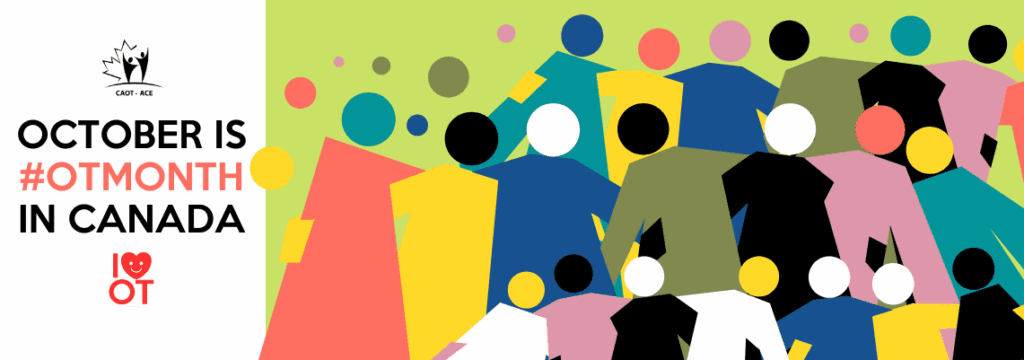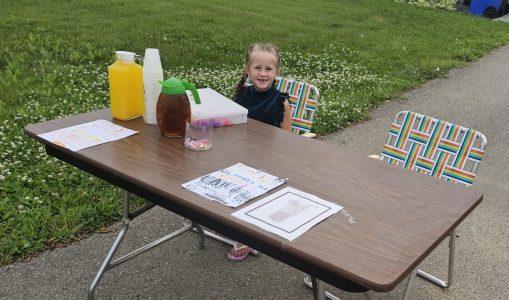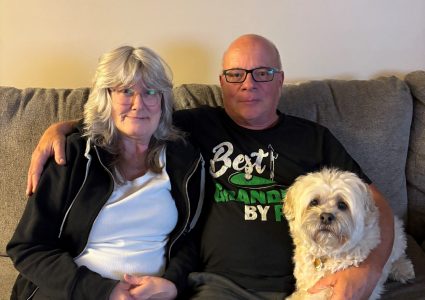To celebrate and recognize Occupational Therapy Day we are exploring the work of our resident occupational therapist at the Kinsmen Foundation, Stephanie Jarton. Stephanie’s role is Member at Large (Occupational Therapy) on the Kinsmen Foundation Board of Directors and she works for Saskatchewan Health Authority as an Occupational Therapist.
Occupational Therapists are a crucial piece of the puzzle. They work directly with applicants to ensure the correct piece of equipment suits their medical needs, now and in the future. Occupational therapists deserve to be celebrated for their contributions to communities across the world, allowing people to partake in meaningful activity. Continue reading Stephanie’s blog below.
What is an Occupational Therapist?
Occupational Therapists (OTs) are health professionals that help people participate in daily activities that are important to them. This is seen in various levels of movement such as day-to-day activities, work, or leisure. OTs work in a variety of different settings – hospitals, community, care homes, schools, rehabilitation centers and in private clinics.
In relation to the Kinsmen Foundation, OTs are often the health professional working with individuals to request equipment that allows the individuals to participate in their daily activities. Support may include equipment like a scooter for community access, home modifications to facilitate self-care, or other essential supports. The Kinsmen Foundation helps reduce the barriers in funding for important equipment that can significantly impact an individual’s quality of life and independence.
My role as a Member at Large is to help the Board of Directors with knowledge of an applicant’s assessment and the equipment being requested, other funding sources that may be available as well as keep connection with the various OTs throughout the province.
Conducting an Individual’s Assessment
OTs use a variety of assessments. OTs frequently assess individuals in their homes to see how they are managing and to discuss their goals for daily activities. Referrals can come from other people involved in someone’s care (i.e. home care). These referrals include identifying difficulties and asking for an assessment to see if there are solutions to help better support an individual or the care giving team. For things such as scooters, it involves a full driving assessment to see if an individual is safely able to handle the scooter in the area they are living in. A cognitive assessment can also be done to support safe driving; however, a functional assessment is always the best indicator. For a variety of different equipment, I often assess the individual to make recommendations, then set up a trial or assessment with a vendor to ensure that the equipment is appropriate and the best option in chosen. From my recommendations, I would then determine what programs or funding services are available, if needed.
Ensuring Accuracy – My Role in Review
Each meeting, I review all equipment applications that are placed on the agenda. I review the OT letters to ensure they explained the equipment requested and how it will impact the applicant’s daily activities. I then review the equipment quotes that are submitted to ensure they match the need, and that they are comparable. If there is anything uncertain with the request, I will reach out to the OT for a better understanding, to the vendor to get a quote fixed, or I will ask the volunteer Board Representative to get some further clarification. I make myself available to the volunteer Board Representatives to reach out with any questions they may have regarding applications prior to each meeting.
The Board Representative and the Occupational Therapist
My two worlds as a volunteer board representative on the Kinsmen Foundation Board of Directors and as an OT with Saskatchewan Health Authority (SHA) collide in a variety of different ways. The connection between the two often comes through applying for funding for my own clients in the SHA region and utilizing the strong connections I’ve established with therapists and equipment vendors throughout the province. When I am the OT who worked on an application, I step out of the room while the Board of Directors make their decision, and I do not review the applicant’s full application. I ask the volunteer Board Representatives to contact me at work regarding my clients to keep my work and personal life separate.
I have connected with OTs in other areas from the province who have talked about specific applications, learned how programs work in their area, and how every therapist has a bit of a different way of doing things when it comes to applying. I even learned about new equipment that I didn’t know existed.
The Reward – Making a Significant Impact
The most rewarding aspect of my role is hearing from the volunteer Board Representatives how happy and grateful the recipients are when they receive the equipment that will make a significant impact in their lives. It’s also rewarding to collaborate with a volunteer Board Representative on a complex application—ensuring all details are in place and clearly explaining the need to the board—and then seeing it get approved.
The Kinsmen Foundation exists year-round, granting applicants access to special needs and/or mobility equipment as well as medical travel assistance.
Despite only having a population of around 1.2 million people, the generous residents of the province have helped us raise over $171 million since 1977.







